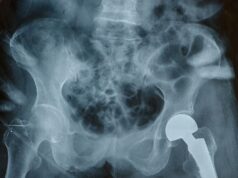The Disparity in Elective Orthopaedic Procedures
Orthopaedic care, with its constant evolution in treating conditions relating to the musculoskeletal system, is facing scrutiny due to glaring healthcare disparities. Recent reports have highlighted ethnic and racial imbalances in elective orthopaedic procedures, like arthroplasty and spinal fusions. What’s concerning is that ethnic and racial minorities seem less likely to undergo these elective procedures, pointing to a complex issue with various contributing factors.
Patient and Systemic Factors Contributing to Disparities
Understanding the roots of these disparities reveals a tangled web involving patient-related issues, provider-related issues, provider-related challenges, and systemic factors. Patients’ circumstances, including socioeconomic status, age, geographical location, language, and gender, contribute to different rates of disease, disability, and even life expectancy. Disadvantaged groups often face obstacles in accessing healthcare services, exacerbating the issue.
Recognizing Persistent Disparities in Orthopaedic Surgery
In the world of orthopaedic care, existing literature has long acknowledged health and healthcare disparities. Studies have indicated significantly lower rates of total hip and knee arthroplasty among Black and Hispanic patients, as well as higher amputation rates in certain demographics. These findings underscore persistent disparities, urging transformative action to enhance health equity in orthopaedics.
Disparities in Access, Quality, and Outcomes
Recent discussions have shed light on the profound impacts of factors like race/ethnicity, sex, and socioeconomic status on healthcare delivery, extending beyond mere access issues. Orthopaedic surgery, in particular, is grappling with these disparities, recognizing their existence not only in accessing care but also in the quality of care and postoperative outcomes. Total joining arthroplasty, hip fractures, and spine surgery have been identified as areas where these factors play a significant role.
Surgeons’ Awareness and Education on Racial/Ethnic Disparities
However, a troubling revelation surfaces—orthopaedic surgeons’ low awareness of racial/ethnic disparities in musculoskeletal care. The fact that disparities in others’ practices are more readily acknowledged than in their own raises questions about the depth of understanding within the orthopaedic community. To address this, there’s a need to increase diversity, promote research initiatives, and enhance education within the field. A more comprehensive understanding is crucial for proactively tackling and rectifying disparities in musculoskeletal care.
Systemic Approaches to Address Disparities
Taking a step back, addressing healthcare disparities in orthopaedic care requires a systemic approach. These disparities cut across various dimensions, and disadvantaged populations often struggle with limited means to access healthcare services. Action is imperative, especially with new legislation calling for organizations to identify barriers to care, screen patients for social determinants of health, analyze patient data, and address healthcare disparities.
The Role of Health Systems in Combating Disparities
To make meaningful progress, health systems and Ambulatory Surgery Centers must commit to resolving disparities in orthopaedic care access, utilization, and outcomes for disadvantaged populations. Leveraging digital care management, remote monitoring, and messaging platforms can play pivotal roles in improving the quality, consistency, and availability of care. As orthopaedic care holds the potential to enhance the health and well-being of numerous Americans, the commitment to resolving disparities is a fundamental step towards ensuring equitable and accessible care for all.
Sources:
Current Concepts in Orthopaedic Care Disparities
Perspectives of Orthopedic Surgeons on Racial/Ethnic Disparities in Care





